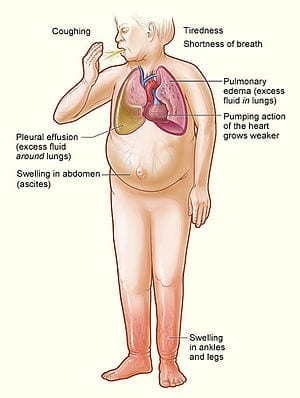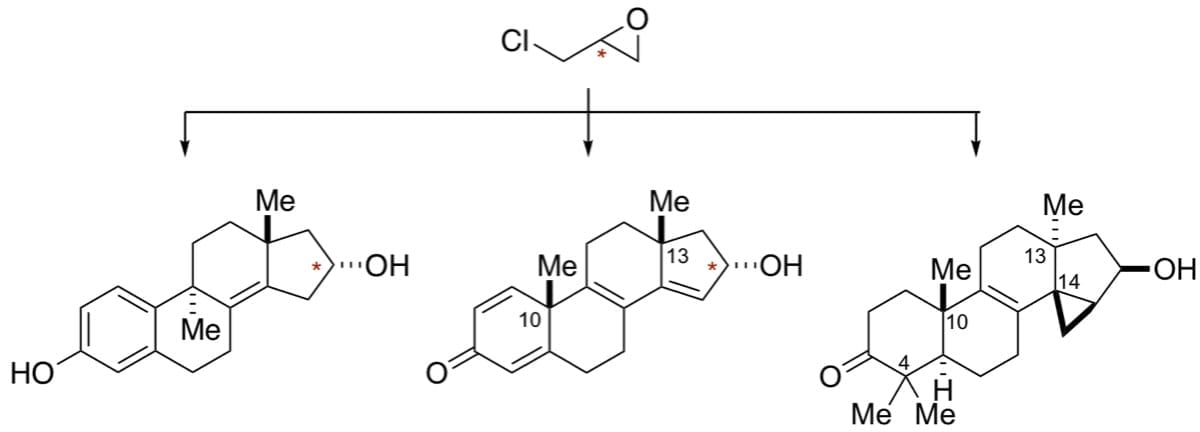
The heart failure drug digoxin, used less and less since it “failed” in its 1997 clinical trial, may do something no drug has achieved since: reduce by 34 percent the chances that heart failure patients will be admitted to the hospital within 30 days of first taking it, according to an analysis highlighted today at the American College of Cardiology’s 62nd Annual Scientific Session and published online simultaneously in The American Journal of Medicine.
Preventing frequent admissions became a national priority last year as the Centers for Medicare and Medicaid Services (CMS) penalized thousands of hospitals an estimated total of $300 million for having above average 30-day readmission rates in patients with pneumonia, heart attack or heart failure.
CMS leveled the penalties as part of federal healthcare reform and with the rationale that many admissions and readmissions are preventable if care is handled properly. While that is a matter of debate, one in five Medicare recipients is readmitted within 30 days at an annual cost of $17 billion, with heart failure the most common culprit. Digoxin is known to reduce acute heart failure symptoms like shortness of breath, the kind of frightening experience that sends people racing to emergency rooms.
“This is the first study to suggest that any drug, old or new, can dramatically reduce the risk of 30-day, all-cause hospital admission among older heart failure patients,” said Ali Ahmed, M.D., M.P.H., professor in the divisions of Gerontology, Geriatrics, & Palliative Care and Cardiovascular Disease within the School of Medicine at the University of Alabama at Birmingham (UAB). Ahmed today presented the work by researchers from UAB and Birmingham Veterans Affairs Medical Center as part of the ACC’s Late Breaking Clinical Trials session.
Obsessed with reducing mortality
The current study is a re-analysis of data from the original Digitalis Investigation Group (DIG) trial, which was funded by the National Heart, Lung, and Blood Institute (NHLBI) and the Veterans Affairs Cooperative Studies program. DIG was a randomized, controlled clinical trial conducted in the early 1990s in which digoxin failed to lower the risk of death (all-cause mortality) in patients with chronic heart failure. The treatment did, however, reduce the risk for hospitalization due to worsening heart failure by 28 percent when patients were followed for three years.
The Latest Bing News on:
Digoxin
- Digoxin Prescription Emerges as Key Player in Enhancing Survival after Hybrid Stage 1 Palliation in infants: Studyon April 26, 2024 at 9:30 am
In a groundbreaking development in pediatric cardiology, a recent study has unveiled the positive impact of digoxin prescription on the transplant-free interstage survival of infants ...
- Lloyd Benes: ‘Your truth,’ ‘my truth’ and the truth about abortionon April 19, 2024 at 5:50 am
Before answering how to deal with truth, let’s first define it. According to the dictionary, truth aligns with facts or reality. This negates the idea that “your truth” can differ from ...
- Nurse Allegedly Killed 2 Women with Fatal Insulin Doses, Sent Flowers and Card to Victim’s Family: Suiton April 17, 2024 at 10:18 am
Pennsylvania authorities have connected former nurse Heather Pressdee with attempting to kill at least 19 patients ...
- BioCryst Pharmaceuticals, Inc.: BioCryst Announces Approval of ORLADEYO (berotralstat) by the Brazilian Health Regulatory Agencyon April 17, 2024 at 2:23 am
BioCryst Pharmaceuticals, Inc. (Nasdaq: BCRX) today announced that the Brazilian Health Regulatory Agency (ANVISA) has granted approval ...
- BioCryst Announces Approval of ORLADEYO® (berotralstat) by the Brazilian Health Regulatory Agencyon April 17, 2024 at 1:30 am
RESEARCH TRIANGLE PARK, N.C., April 17, 2024 (GLOBE NEWSWIRE) -- (Nasdaq: BCRX) today announced that the Brazilian Health Regulatory Agency (ANVISA) has granted approval for oral, once-daily ...
- Ask A Nutrition Professional: Are There Drug Interactions With Apple Cider Vinegar?on April 16, 2024 at 2:28 pm
Expert opinion from Cassia D Muller Bechelor in Nutrition · 2 years of experience · Brazil Yup. Vinegar should not be taken by people who use the following medications: Hypoglycemics (metformin, ...
- Professional Faqs: Are There Drug Interactions With Apple Cider Vinegar?on April 16, 2024 at 2:28 pm
Expert opinion from Ledyan Ledyan Master's degree Medicinal plants and functional food/Bachelor's degree Nutrition · 4 years of experience · Indonesia Apple cider vinegar is made from fermented apple ...
- New heart disease treatment could stem from daffodilson October 30, 2022 at 12:00 am
While the antibiotic Myriocin is derived from certain types of fungus. Digoxin, prescribed to help with heart failure and cardiac arrhythmias, was developed from the foxglove plant in the 1930s.
The Latest Google Headlines on:
Digoxin
[google_news title=”” keyword=”digoxin” num_posts=”10″ blurb_length=”0″ show_thumb=”left”] [/vc_column_text]The Latest Bing News on:
Reducing heart failure
- According to Scientists, Making This Simple Dietary Switch Can Reduce Bad Cholesterol Levels by 10%on April 27, 2024 at 9:34 am
Regularly replacing meat with mycoprotein, like Quorn, can reduce bad cholesterol levels by 10 percent, similar to the effects of adopting a Mediterranean or vegan diet. Regularly replacing meat with ...
- Vaping, even once, may raise the risk of heart failure, study findson April 27, 2024 at 4:00 am
A new study indicates that people who have used a vape at any point in their lives are 19% more likely to experience heart failure compared to people who have never used them.
- Heart Failure Mortality Higher Now Than in 1999on April 26, 2024 at 12:41 pm
There needs to be a “focus on prevention of diseases and a redesign of how we deliver care,” says Marat Fudim.
- New Research Shows Beta-Blockers Might Not Always Be Helpful After a Heart Attackon April 26, 2024 at 12:20 pm
New research suggests that taking beta-blockers after a heart attack doesn't significantly reduce the risk of a second heart attack for people with normal heart function.
- Irregular bone marrow cells may increase heart disease riskon April 26, 2024 at 4:00 am
Over time, bone marrow stem cells develop key genetic errors and pass them on to immune cells. This may increase the risk of developing heart disease.
- Climbing Stairs May Improve Heart Health and Help You Live Longeron April 25, 2024 at 11:38 pm
New research shows climbing stairs is linked to improved heart health and a reduced risk of all-cause mortality. To incorporate more stair climbing into your day, take the stairs whenever possible.
- Study: Women with heart disease prescribed cholesterol-lowering drugs less often than menon April 25, 2024 at 3:36 am
Women with heart disease may be prescribed cholesterol-reducing statins less frequently than men, contravening recommended treatment guidelines, according to new research released Thursday.
- Advance in the treatment of acute heart failure identifiedon April 24, 2024 at 5:00 pm
A multicenter study has identified a potential new treatment for acute heart failure, a leading cause of hospitalization and death.
- More than 3 million Medicare patients could be eligible for coverage of Wegovy to reduce heart disease risks, study sayson April 23, 2024 at 5:00 pm
have a history of heart disease and are specifically prescribed the weekly injection to reduce their risk of heart attacks and strokes. The Food and Drug Administration approved Wegovy for that ...
- Medical Compass: What are the best ways to reduce your heart disease risk?on April 19, 2024 at 9:08 am
Heart disease is on the decline in the U.S. Several factors have influenced this, including better awareness, improved medicines, earlier treatment of risk factors and lifestyle modifications (1).
The Latest Google Headlines on:
Reducing heart failure
[google_news title=”” keyword=”reducing heart failure” num_posts=”10″ blurb_length=”0″ show_thumb=”left”]









